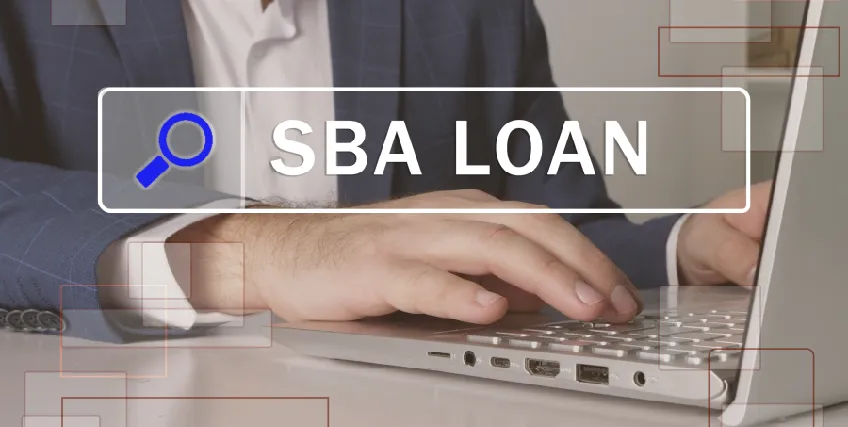Financing and Funding Options for Staffing Agencies
October 14, 2025 | Last Updated on: October 14, 2025

The staffing industry is a force in the American economy. It’s estimated to product $207 billion in 2024 with yearly growth estimates at 3%. But if you’re starting a staffing agency, it may require a significant amount of staffing agency financing to get the operation off the ground.
Here’s what you need to know about the staffing business and payroll funding for staffing companies.
How Staffing Agencies Work
Staffing agencies are companies that recruit temporary and permanent employees for other businesses. Staffing agents become experts on the hiring process and work to make the process smoother for employers so that they don’t have to hire their own HR or recruiting teams. These agencies review the qualifications of applicants and conduct preliminary interviews, significantly decreasing the time of the hiring process for the client.
The Recruitment Process
You can hire a recruiting agency or staffing agency to fill any open position, from entry-level jobs to executive positions. The processes and procedures may vary slightly depending on the preference of the agency, industry, and the client, but most agencies follow these general practices:
- Employer contacts the staffing agency – Companies that are looking to fill a position reach out to a staffing agency that specializes in their field. The potential employers give details to the agency about the position they want to fill, including the pay range, required skillset, and whether the position is short-term or long-term.
- A contract is signed – After the staffing agency has received an outline of the business needs of their new client, both parties sign a contract. The contract, or service agreement, explains the relationship, payment, and any other relevant terms and conditions of the placement.
- Review candidates – Once the recruitment business has a contract with an employer, they will review their current portfolio of jobseekers, reaching out to anyone that may be a good fit. If the staffing agency is not working with enough qualified candidates, they recruit new clients using a job search site like Indeed.com or LinkedIn.
- Interviews – Staffing companies will interview potential candidates before sending them to the hiring company. They may conduct a background check and drug test, as well as check references from previous employers. Typically staffing agents send a predetermined number of qualified candidates to the employer, as stated in the contract. The candidate will be either permanently hired by the employer or remain an employee of the staffing firm, depending on the longevity and specifics of the assignment.
How To Open a Staffing Agency
If you’re ready to move from “recruiter” to “owner of a staffing agency,” you may be wondering exactly what needs to be done to start working and making money. Check out this step-by-step guide to opening your new staffing agency.
- Choose a niche industry – Most staffing agencies work primarily in one industry, so the first step in owning your own recruiting firm is to choose your industry and focus. It could be focused on temporary staffing or a more permanent staffing organization. Or, focus on industries like tech or manufacturing.
- Create and register your entity – You’ll need to decide what organizational structure you will choose for your business. There are pros and cons to each structure, but small business owners typically start out as a sole proprietorship, limited liability company (LLC), or partnership. It’s also possible to structure your staffing agency as a corporation, but it’s important to understand the tax implications of a corporate structure. You can receive an employer identification number (EIN) from the IRS and register your organization with the state.
- Make a business plan – A business plan lays out the new business model of your staffing agency. A good business plan will also help the business owner make decisions about operations and be prepared for cash flow and revenue fluctuations.
- Move forward – Once you have a business plan intact for a new staffing agency, it’s time to move the venture forward. The next steps may include securing staffing agency financing, finding office space, contacting potential clients, and hiring employees, depending on the business plan and entrepreneurs’ goals. It is also necessary to get all required licenses and permits and purchase business insurance before you are ready to open for business.
Starting Costs For a Staffing Agency
The amount of staffing agency financing you will need depends on the type of business you’re starting, your location, service pricing, and the business plan. A new staffing agency could expect some or all of the following expenses:
- Legal fees to form the entity
- Insurance costs
- License and permit expenses
- Back-office expenses
- Staffing agency financing expenses
- Computer hardware and software
- Payroll obligations, including payroll processing
- Commercial real estate – rent or mortgage payments
- Advertising costs
Financing Options For Staffing Agencies
There are several options for payroll funding for staffing companies. Online lenders and traditional banks that have experience working with staffing agencies. Choosing the right funding will depend on your business goals, business and personal credit scores, fixed assets, and time restrictions.
Here are a few solutions on how to finance a staffing agency.
Staffing Factoring
Staffing factoring is also called invoice factoring or payroll funding. It’s a type of funding option where the borrower receives a lump sum payment upfront in exchange for unpaid invoices. Invoices are issued to clients in a normal fashion, with a change made to the “remit to” instructions and a copy sent to the factoring company. The provider purchases the invoice and advances up to 90% of its value to the staffing agency. Once the invoice is paid, the factoring company releases the remaining balance to the staffing company, less the predetermined factoring fees.
Factoring is a popular source of funding for recruiting companies because staff agencies are typically forced to wait 30 to 90 days to get paid for their services. Using a factoring company to fund payroll or other working capital needs means you can use your accounts receivable balance and outstanding invoices to cover current expenses, like payroll taxes, utility costs, and rent. Staffing agencies prefer this type of financing because the approval process is easy, upfront funding can occur as soon as the same day, and candidates can be paid promptly.
Business Line of Credit
A business line of credit is a type of revolving credit that works like a business credit card. A line of credit becomes available when a business owner is approved for a maximum credit amount. The borrower can then withdraw funds on that credit line at any time if available credit exists. Eligibility for this type of loan is determined by the borrower’s creditworthiness.
Repayment schedules for lines of credit typically require the borrower to make monthly payments, where the amount is determined by the amount of withdrawn funds and the interest rates. Lines of credit offer flexible funding since the business only borrows what it needs, so they are very popular among staffing agencies where revenues fluctuate from month to month.
SBA loans
SBA loans are a great small business loan option for many staffing company owners. The U.S. Small Business Administration (SBA) works with registered SBA lenders to guarantee a portion of the loan amount. The SBA backing makes these loans more obtainable for small businesses that are not eligible for a traditional bank loan. There are many types of SBA loans, which dictate the maximum loan amount, repayment terms, and permitted use of the funds.
SBA loans can be used for any number of reasons and are approved for up to $5 million. The capital can be used for working capital, commercial real estate, franchise financing, payroll financing, renovations, purchasing tools for back-office support, debt refinancing, and more. Borrowers repay SBA loans with regular monthly payments that include a fixed or variable interest rate.
Term Loan
A term loan is a traditional type of loan where the borrower receives an approved amount of funding upfront and repays the loan according to the repayment terms. Business loans can be secured or unsecured and may require a personal guarantee. Term loans can be approved for amounts up to $500,000 and the eligibility requirements depend on the lender and the amount of the loan. The application process for a term loan may include a request for personal and business documents including:
- Identification documents
- Business bank statements
- Copies of recent federal income tax returns
- Current debt schedules
- Business plan
- Financial statements
- Credit history (personal and business)
Merchant Cash Advance
A merchant cash advance (MCA) offers small business owners a fast financing option where they receive a lump sum payment upfront and repay the loan with future credit card sales. This is a great financial tool for staffing agencies that receive a large portion of revenue from business credit card sales. MCAs are especially helpful to borrowers with bad credit but can be expensive when processing fees are considered.
Final Thoughts
Staffing agencies have a wide array of financing solutions to choose from, including staffing agency payroll funding and other short term business lending. As you’re choosing which option works best for you, be sure to consider the payment terms and how it could impact your business’s monthly cash flow and profitability.
FAQs about Staffing Agency Financing
What is payroll funding for staffing agencies?
This is a financing solution that provides immediate capital to cover employee wages before client payments are received. This can be a great cash flow solution for a staffing agency.
What are the benefits of payroll factoring?
The benefits of payroll factoring include improved cash flow and it reduces the need for more lending facilities for businesses.
Why would a staffing company use invoice factoring?
A staffing company can use invoice factoring to access capital when there are unpaid invoices outstanding.
How can staffing agencies improve cash flow with payroll funding?
A payroll funding solution can be great for a staffing agency as it gives immediate access to capital based on outstanding invoices.
How does factoring work for a startup staffing company?
Factoring for staffing companies involves selling unpaid invoices to a factoring company at a discount for immediate capital.




